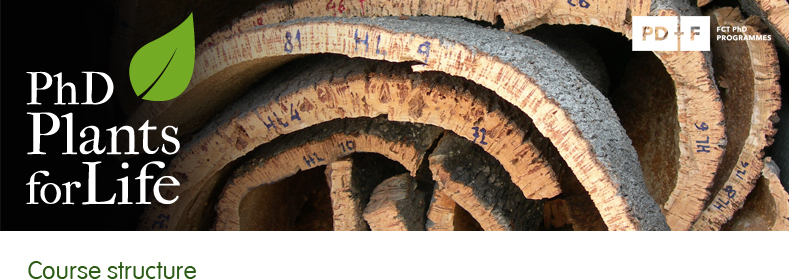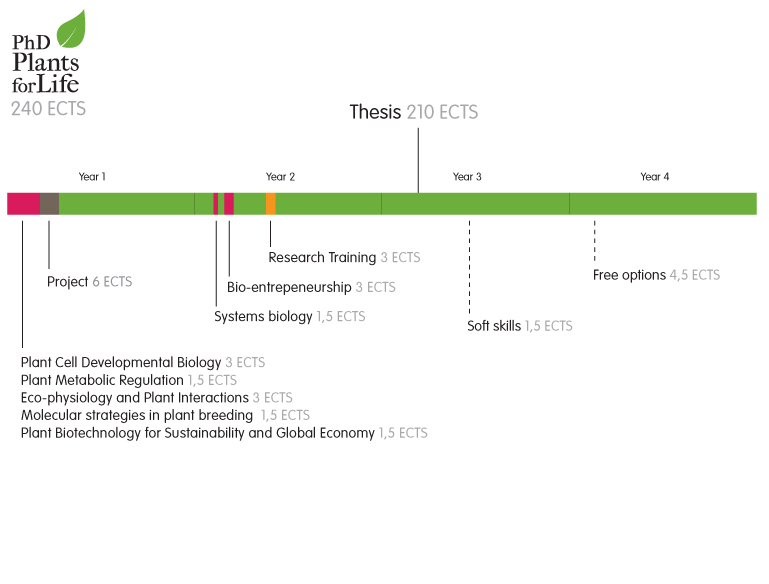Course Structure

The PhD Program Plants for Life has a total of 240 credits (ECTS) and is mainly composed by the individual research project (210 ECTS) leading to thesis dissertation. The course component (30 ECTs) corresponds to a total of 20 weeks and focuses on training in core competences in plant sciences and in transversal skills. Supported by their supervisors, students are encouraged to develop their own path within the Program, by writing their own project and selecting additional courses.
The program initial training deals with fundamental subjects, such as Plant Cell and Developmental Biology, Plant Metabolic Regulation, and Eco-Physiology and Plant Interactions. This training aims to provide an overview of general aspects in Plant Sciences and the required conceptual framework to tackle the subsequent, more applied subjects: Modern Strategies in Crop Breeding and Plant Biotechnology for Sustainability and Global Economy. Most of the curricular units take one or two weeks (1.5 or 3 ECTS).
Students have a four week period to build up, write and discuss their thesis project, under close supervision of the thesis adviser (Research Project, 6 ECTS) before starting their thesis, which comprises most (210 ECTS) of the PhD Program. One year after starting their research work, the student’s progress will be monitored (Research Training, 3 ECTS).
Students may choose advanced courses taking place at other institutions, according to their personal interests and the relevance to their thesis (Free Option, 4.5 ECTS). Emphasis is also given to the development of soft skills (oral and written communication to peer and public audiences), entrepreneurship and networking. Students will profit from an outstanding research environment, which entails interactions between research groups across the participating national and international institutions, promoting interdisciplinary high-level training.
The structure of The PhD Program is depicted below.




